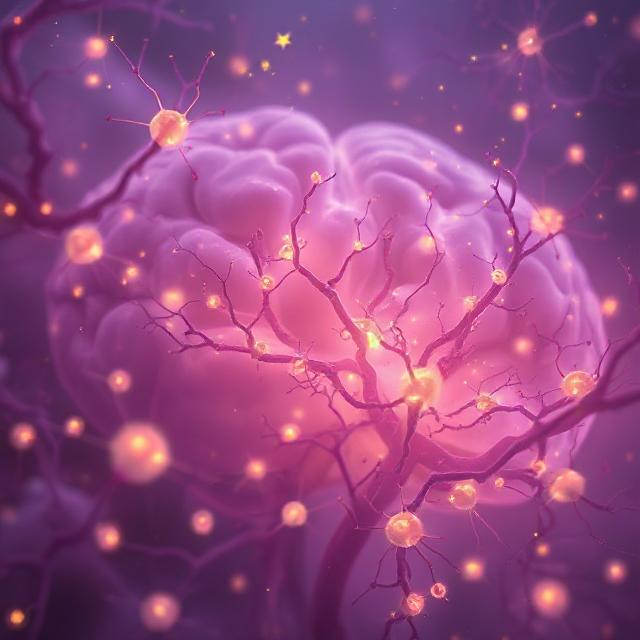
Table of Contents
Cellular Cleanup: Fasting’s Secret Cognitive Benefits
We tend to think of fasting as a way to lose weight or “reset” digestion—but its most powerful effects happen inside our cells. When the body is deprived of external fuel, it doesn’t just shut down—it cleans house. Old proteins, dysfunctional mitochondria, and damaged organelles are broken down and recycled through a process known as autophagy.
This internal cleanup isn’t just good for the body. It’s a game-changer for the brain.
In this article, we explore how cellular cleanup through fasting unlocks cognitive benefits—from sharper memory to reduced inflammation—and why this ancient biological rhythm might be the most underutilized brain upgrade available.
🧠 What Is Autophagy?
Autophagy (from the Greek for “self-eating”) is the body’s way of breaking down old, damaged cellular components and reusing their parts. It’s a built-in recycling mechanism triggered primarily by fasting, exercise, and certain types of stress.
When we eat, insulin rises, mTOR (a growth signal) is activated, and the body is focused on building. But when we stop eating—especially for 16+ hours—nutrient sensors like AMPK are triggered instead. This flips the cellular switch from growth to repair.
Think of autophagy as your body’s nightly janitorial crew—quietly cleaning up cellular trash so your systems run better the next day.
🧬 Cellular Cleanup: Why It Matters for Your Brain
Your brain is made up of trillions of neural connections that require pristine signaling. Over time, waste builds up: misfolded proteins, oxidized fats, and malfunctioning mitochondria—all of which impair your brain’s ability to fire, adapt, and focus.
Autophagy:
- Clears damaged synapses
- Removes dysfunctional mitochondria (mitophagy)
- Reduces neuroinflammation
- Supports neuroplasticity and regeneration
These cellular upgrades improve everything from short-term memory to long-term resilience. In fact, impaired autophagy has been linked to Alzheimer’s, Parkinson’s, and other neurodegenerative diseases. When autophagy is working, your brain functions like a well-oiled machine. When it stalls, mental fog, mood instability, and memory issues often follow.
🔬 What the Research Shows
Here’s what recent studies and reviews have found:
🧪 1. Fasting Enhances Brain-Derived Neurotrophic Factor (BDNF)
BDNF is a protein that supports the growth of new neurons and helps existing ones survive. Fasting increases BDNF expression, improving:
- Learning capacity
- Emotional resilience
- Neurogenesis in the hippocampus
High BDNF = higher mental adaptability. Fasting is one of the most natural ways to boost it.
🧪 2. Autophagy Protects Against Neurodegeneration
Mouse models have shown that increased autophagy can:
- Reduce tau and amyloid-beta accumulation (key Alzheimer’s markers)
- Protect dopaminergic neurons (relevant in Parkinson’s)
- Prevent age-related decline in memory performance
🧪 3. Ketones Fuel the Brain More Cleanly
After about 18–24 hours of fasting, the body shifts from glucose to ketone bodies. Ketones like beta-hydroxybutyrate not only serve as clean fuel but also:
- Lower oxidative stress in neurons
- Increase mitochondrial efficiency
- Serve as signaling molecules to trigger autophagy
🧘♂️ The Mental Experience of Cellular Cleanup
People who fast consistently often report:
- Mental clarity and laser focus
- Reduced anxiety
- Improved sleep architecture
- Greater emotional stability
- Enhanced creative flow
These aren’t placebo effects. They’re the result of deeper metabolic changes:
- Lower insulin = reduced inflammation
- Ketones = clean-burning mental fuel
- Autophagy = rejuvenated neural circuits
Together, these lead to a cognitive upgrade that feels like rebooting the brain.
⏰ When Does Autophagy Begin?
Autophagy is a gradient, not a switch. But most research indicates:
- 12–16 hours of fasting: mild autophagy, mostly in the liver
- 18–24 hours: more systemic effects, including in the brain
- 48+ hours: deeper cleanup, but with higher stress cost
Intermittent fasting protocols like 16:8 (fast for 16 hours, eat during an 8-hour window) help ease into mild autophagy without severe calorie restriction. But extended fasts (24–72 hours) unlock deeper regeneration—especially when paired with light movement, hydration, and electrolyte support.
🛠 How to Support Cellular Cleanup During a Fast
Fasting alone turns on the cleanup process. But you can enhance it with strategic choices:
| Strategy | Benefit |
|---|---|
| Light exercise | Increases AMPK and boosts autophagy |
| Cold exposure | Triggers hormetic stress pathways |
| Low-protein intake pre-fast | Reduces mTOR, allowing autophagy to rise |
| Black coffee or green tea | Supports autophagy without breaking the fast |
| Electrolytes | Prevent fatigue and mental fog during longer fasts |
| Sleep | Nighttime is prime time for brain autophagy |
Avoid high-protein or carb-heavy meals during your fasting window, as both can suppress autophagy.
⚠️ Cautions and Considerations
While fasting offers profound cognitive benefits, it’s not for everyone:
- Pregnant or underweight individuals should not fast
- People on medications (especially for blood sugar or blood pressure) need medical guidance
- Excessive fasting can trigger stress or nutrient deficiencies if not supported properly
Listen to your body. The goal is cellular cleanup, not burnout.
🧠 Fasting, Autophagy, and Memory
Perhaps the most exciting research connects autophagy with memory enhancement. Fasting improves:
- Hippocampal plasticity (the brain’s memory center)
- Dendritic pruning (removal of weak neural connections)
- Stress resilience, which preserves learning capacity under pressure
Regular fasting mimics a natural, evolutionary rhythm: brief food scarcity, followed by a feast. This rhythm tunes the nervous system and trains it to retain only meaningful, useful patterns—a kind of neural housekeeping.
🧭 Final Reflection: The Mind on Autophagy
Fasting is not deprivation. It’s liberation—from noise, clutter, and cellular dysfunction. By embracing short periods of intentional abstention, we create the internal space for regeneration, insight, and clarity.
When you stop feeding the body, it feeds on what no longer serves you.
And that includes the mental junk you didn’t know you were carrying.
You don’t need to fast for days to see results. Even a single 18-hour fast can sharpen your mind, reset your metabolism, and activate the secret intelligence of your cells.
